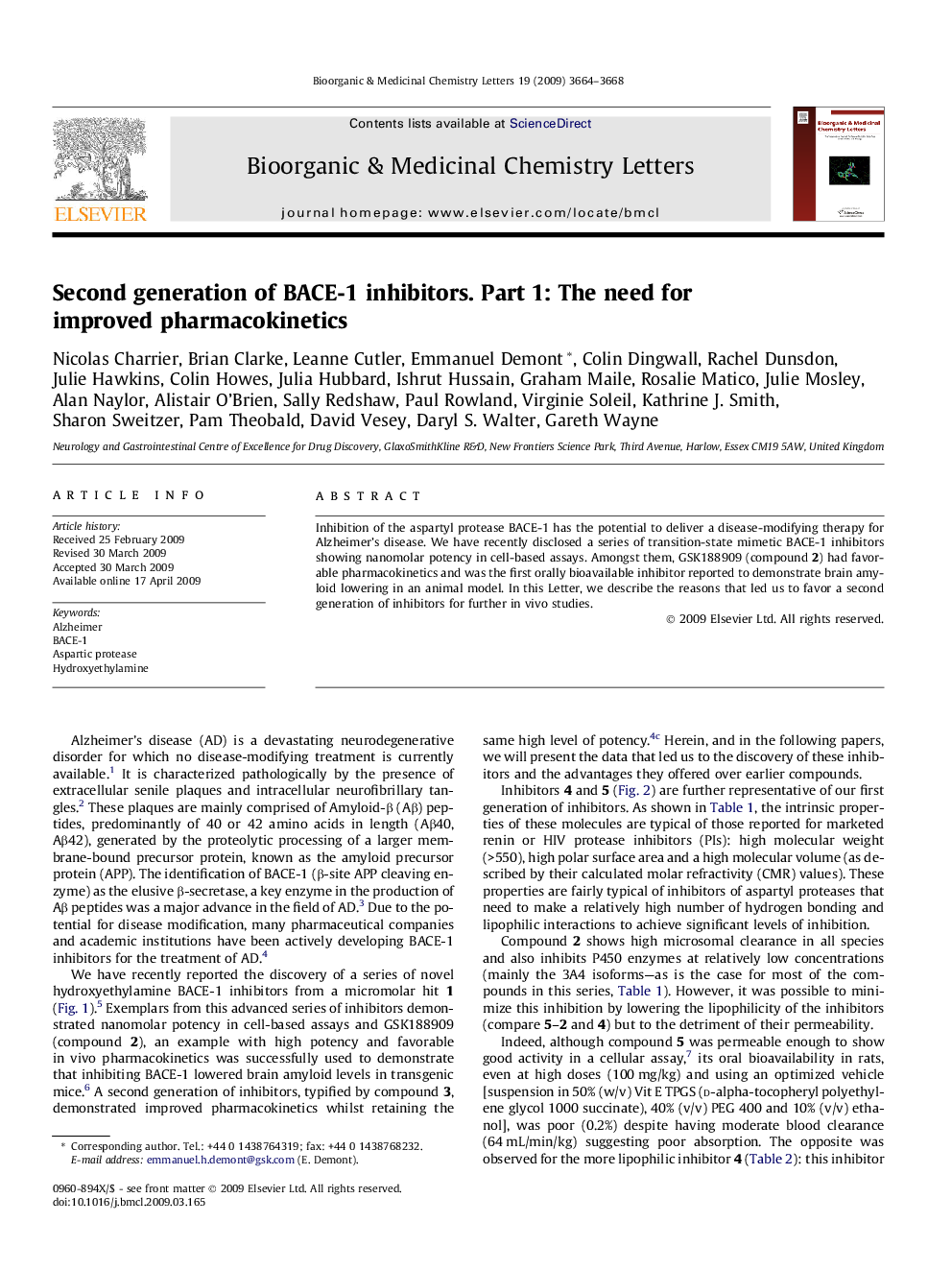| Article ID | Journal | Published Year | Pages | File Type |
|---|---|---|---|---|
| 1372261 | Bioorganic & Medicinal Chemistry Letters | 2009 | 5 Pages |
Inhibition of the aspartyl protease BACE-1 has the potential to deliver a disease-modifying therapy for Alzheimer’s disease. We have recently disclosed a series of transition-state mimetic BACE-1 inhibitors showing nanomolar potency in cell-based assays. Amongst them, GSK188909 (compound 2) had favorable pharmacokinetics and was the first orally bioavailable inhibitor reported to demonstrate brain amyloid lowering in an animal model. In this Letter, we describe the reasons that led us to favor a second generation of inhibitors for further in vivo studies.
Graphical abstractThis Letter demonstrates that our first generation of hydroxyethylamine BACE-1 inhibitors was unlikely to deliver a molecule suitable for progression in clinical trials; hence the necessity to discover a second generation of inhibitors with improved pharmacokinetics.Figure optionsDownload full-size imageDownload as PowerPoint slide
